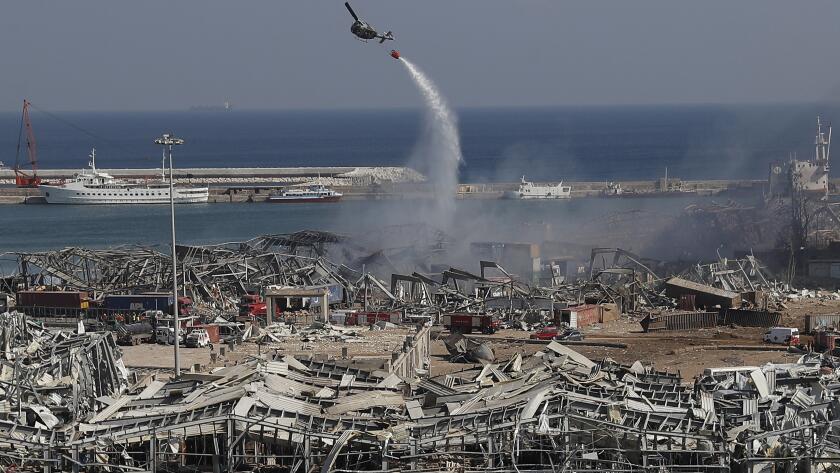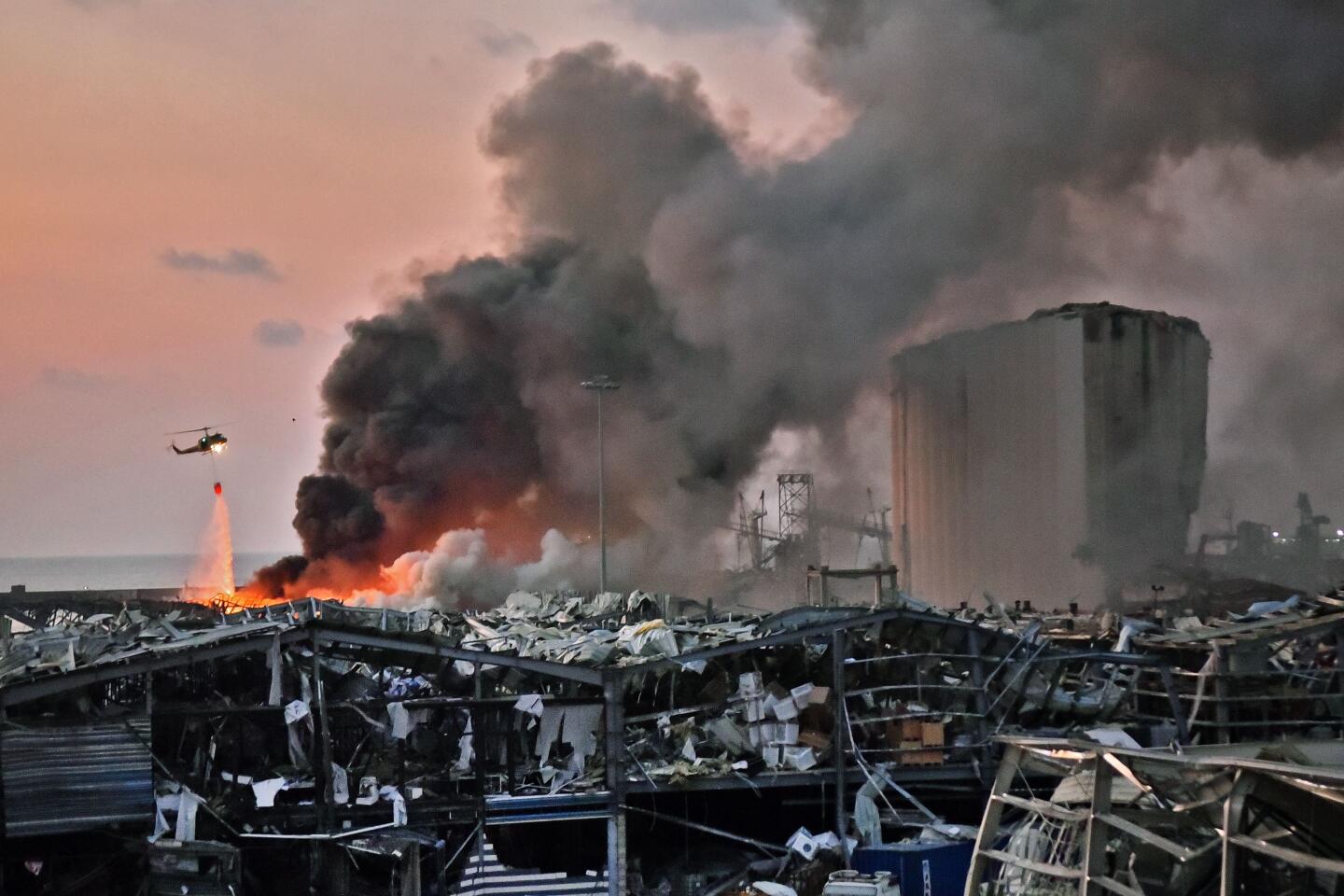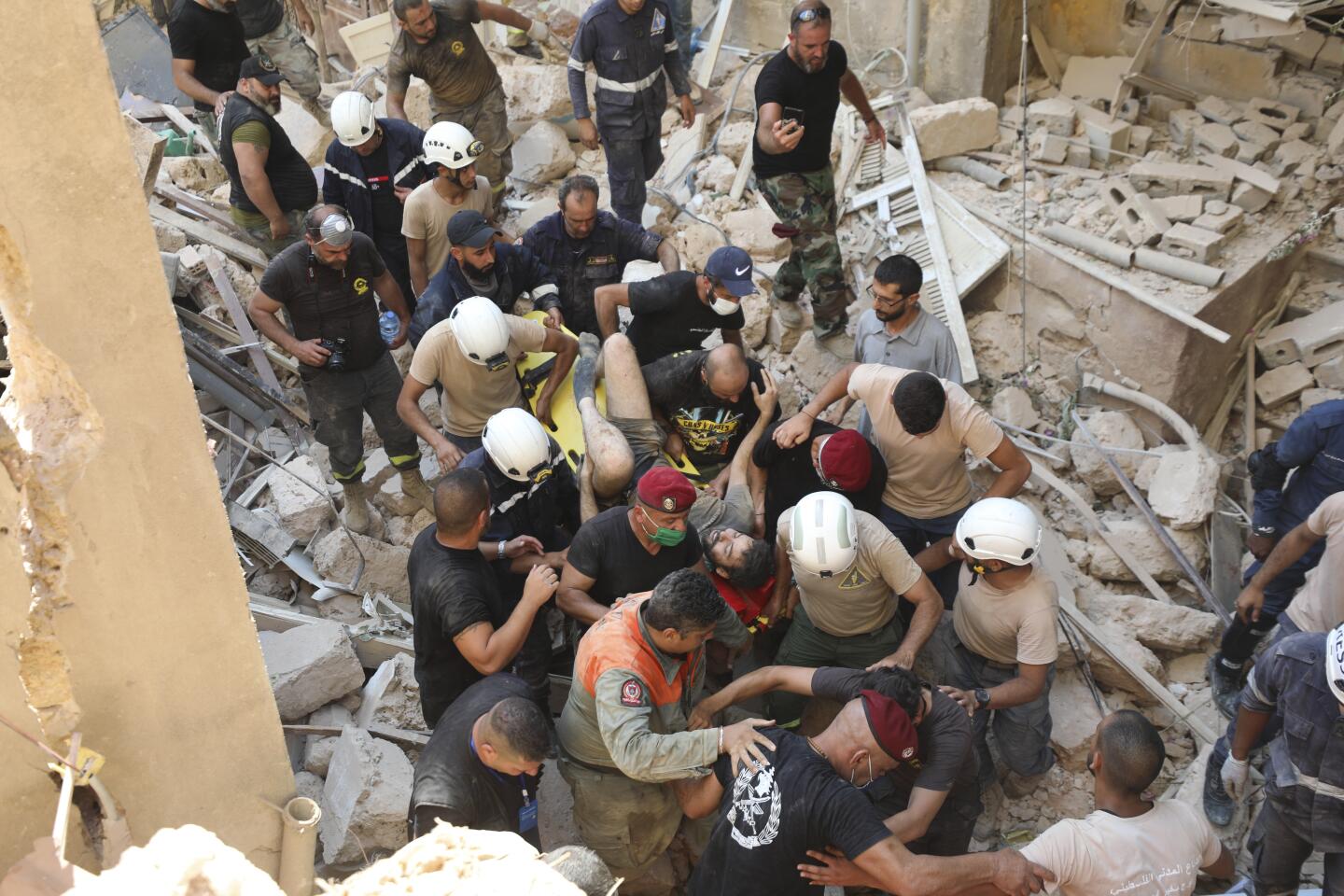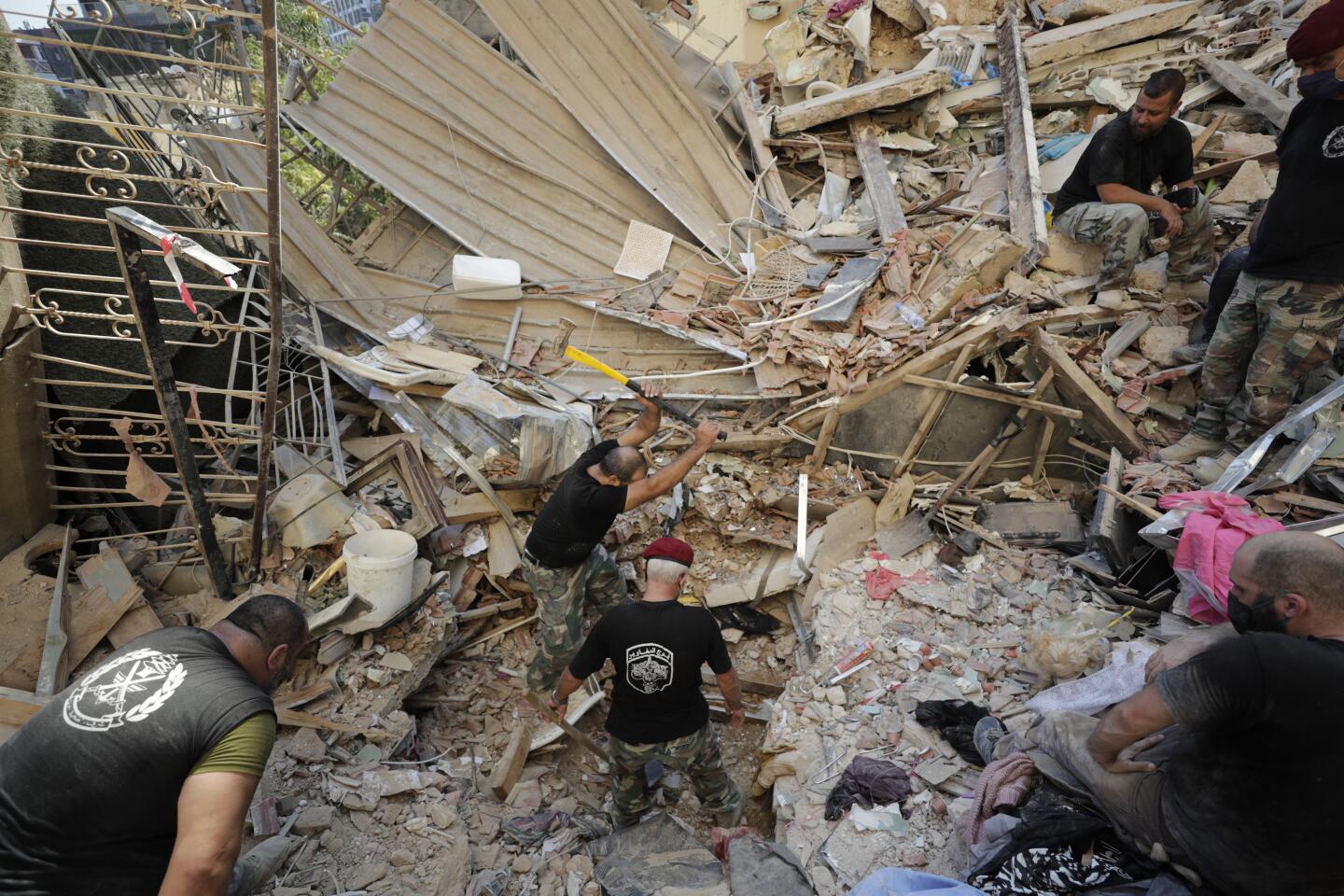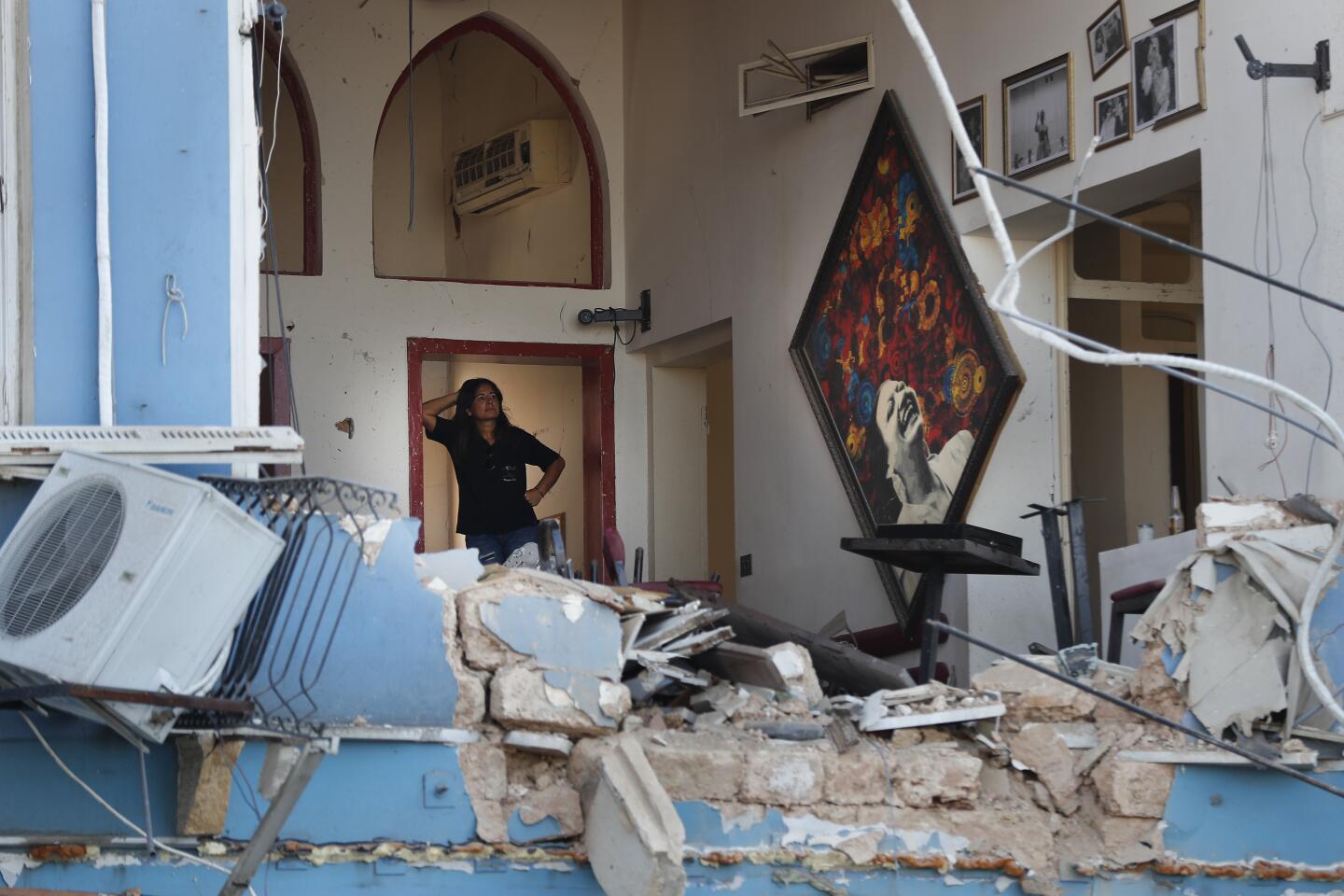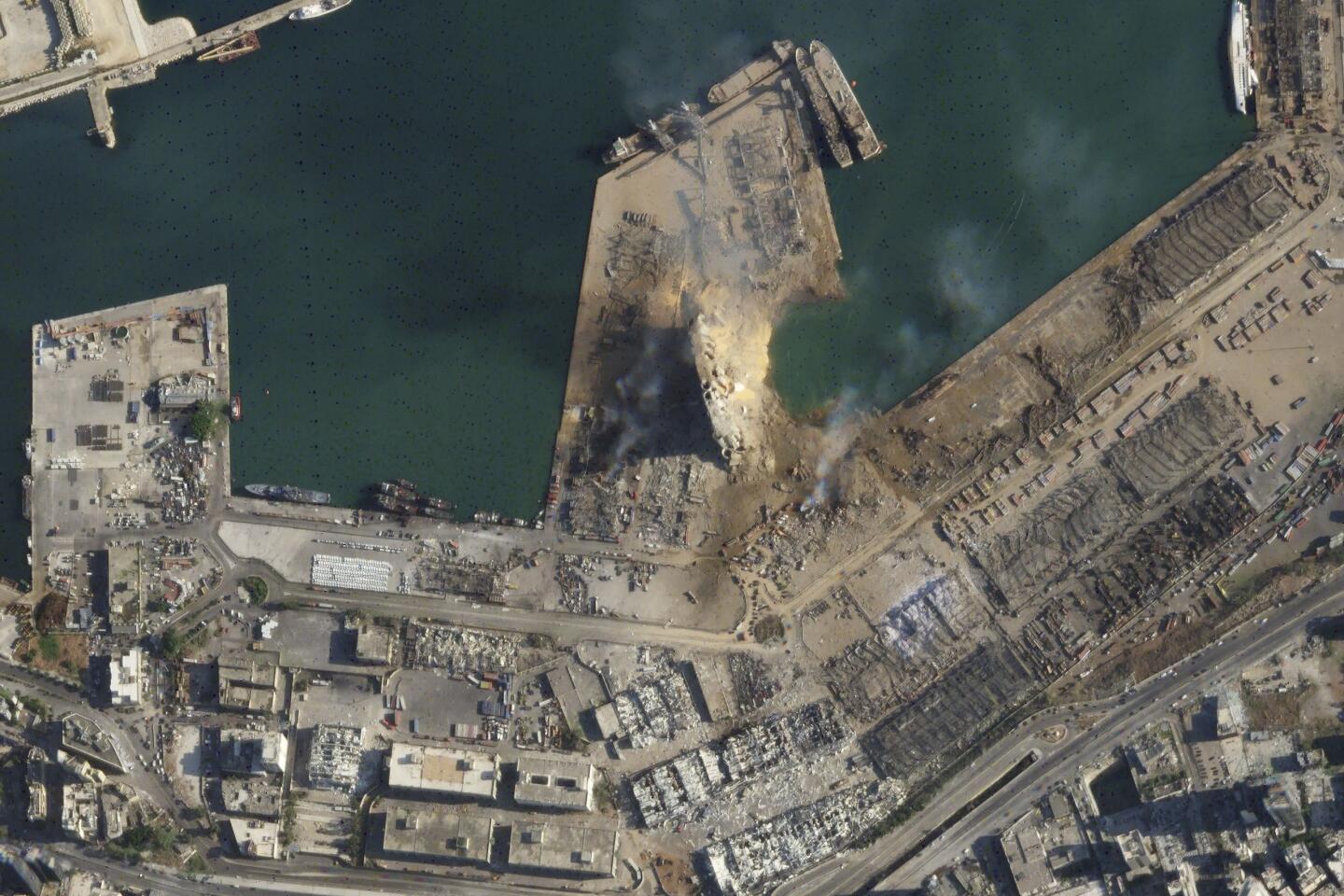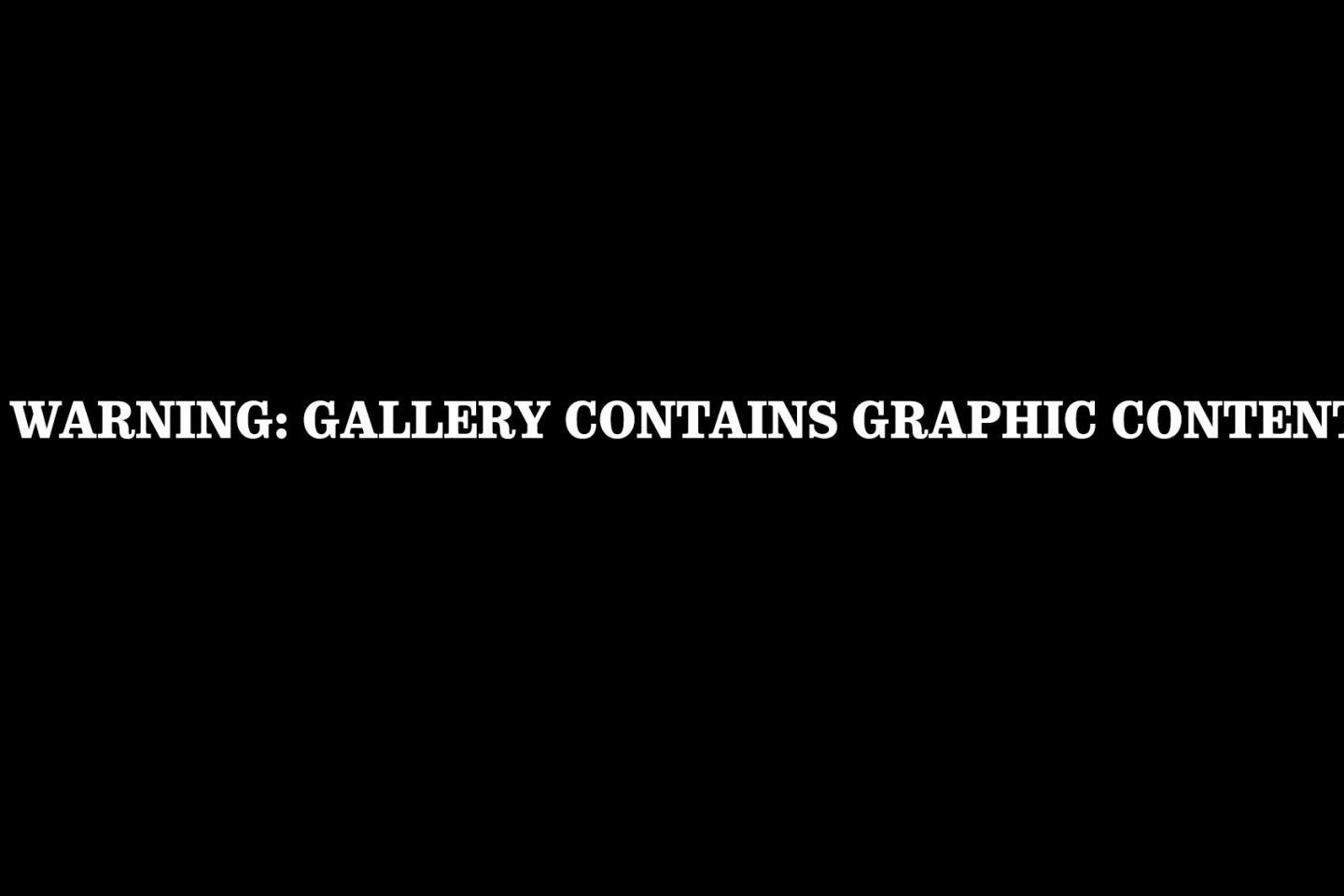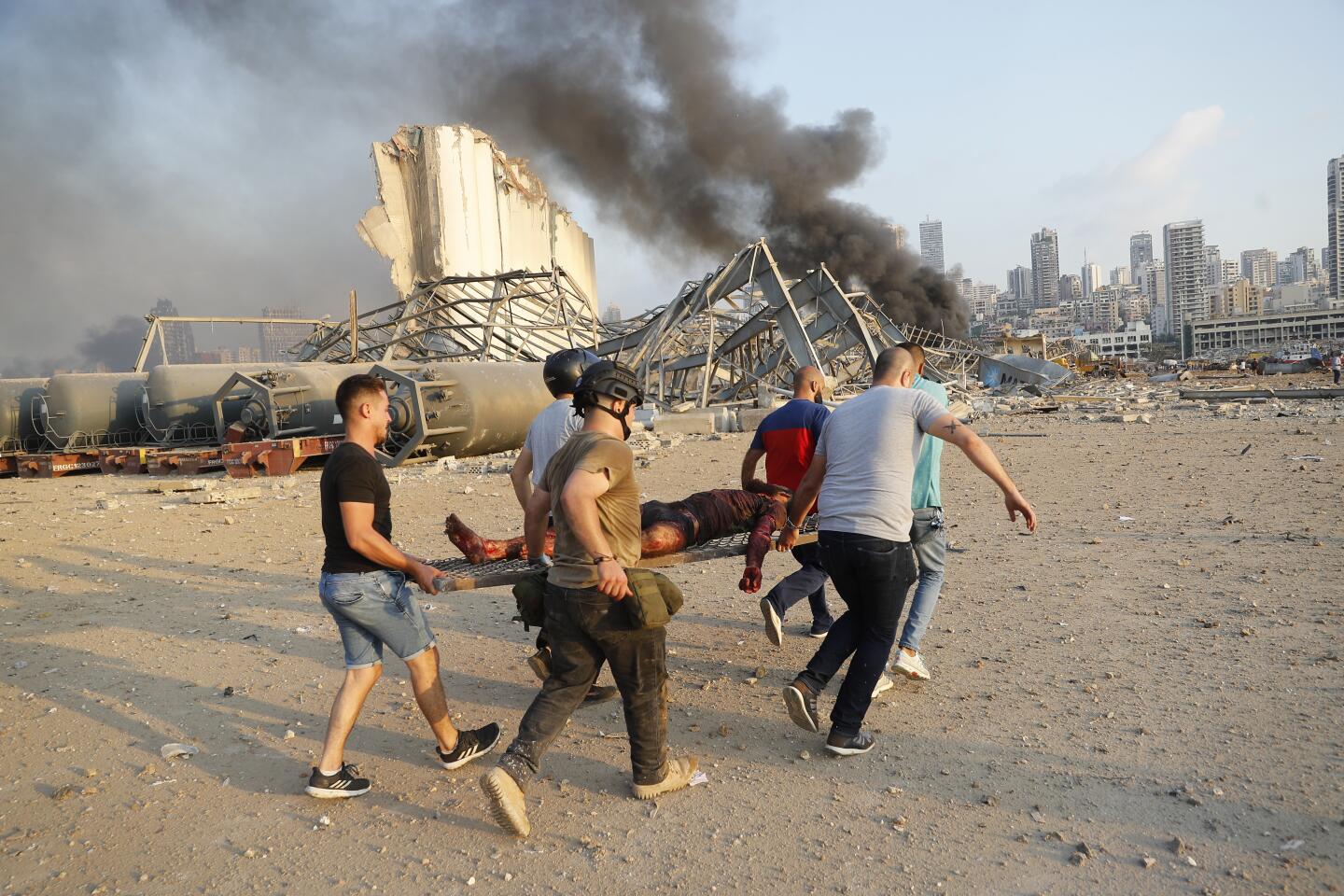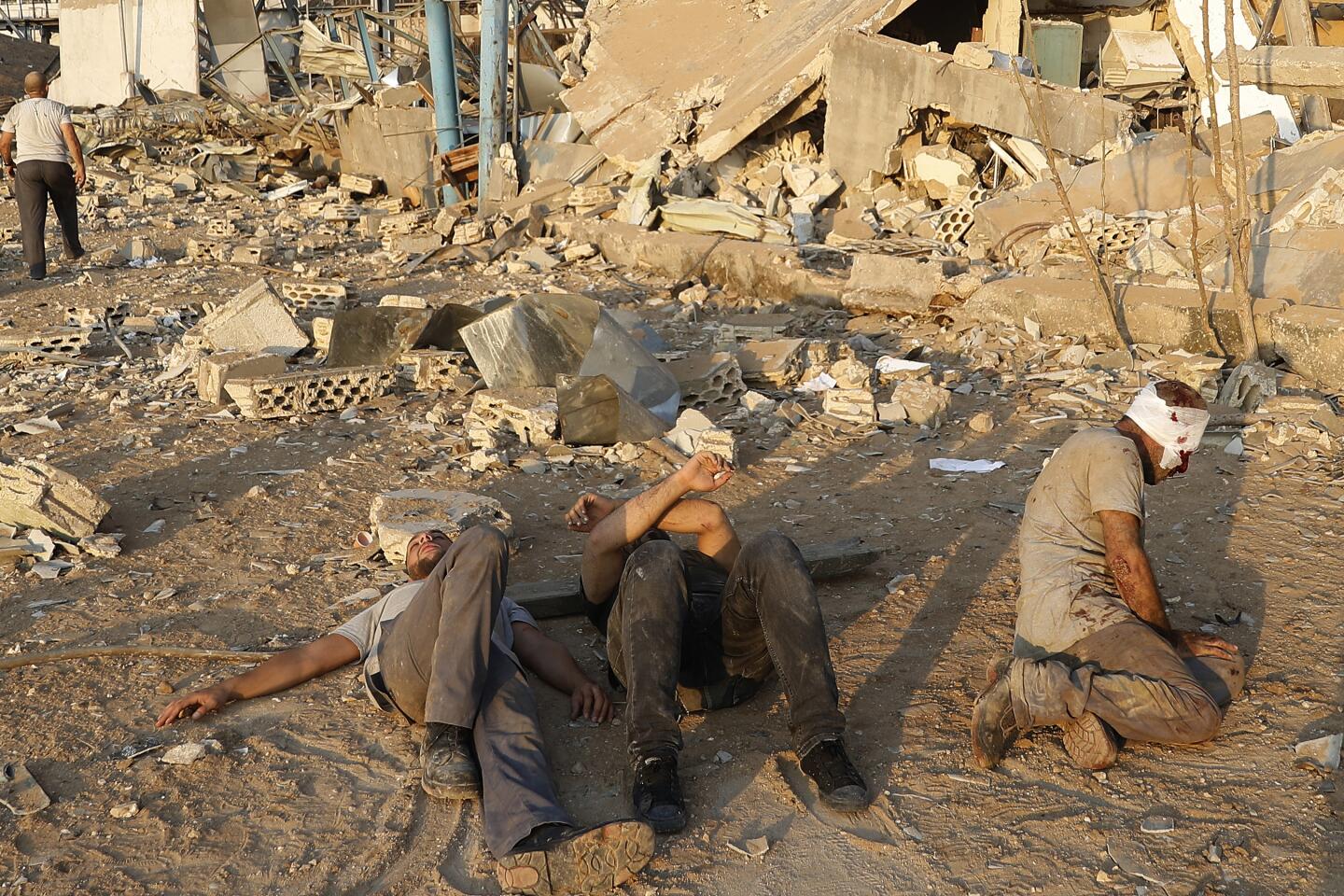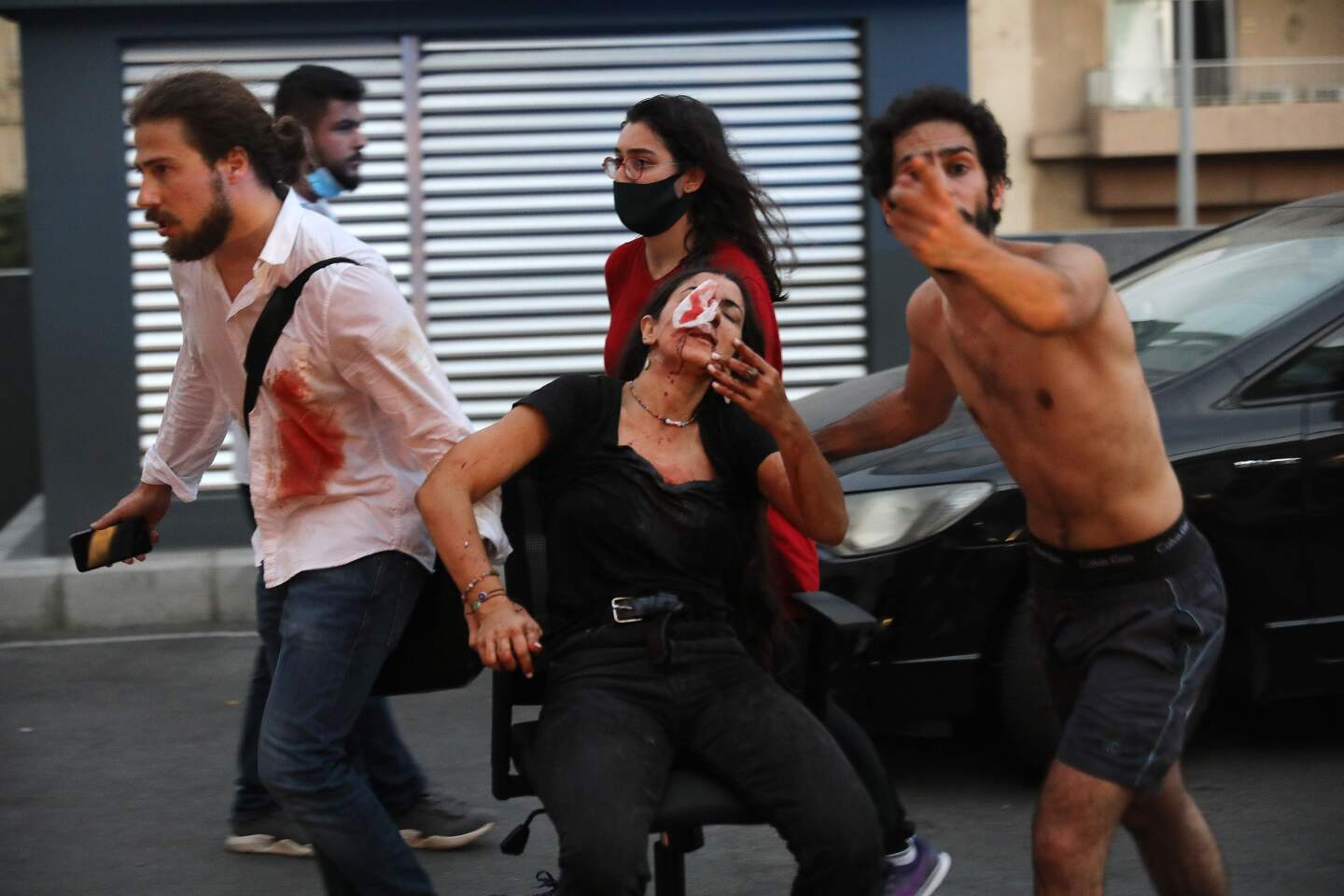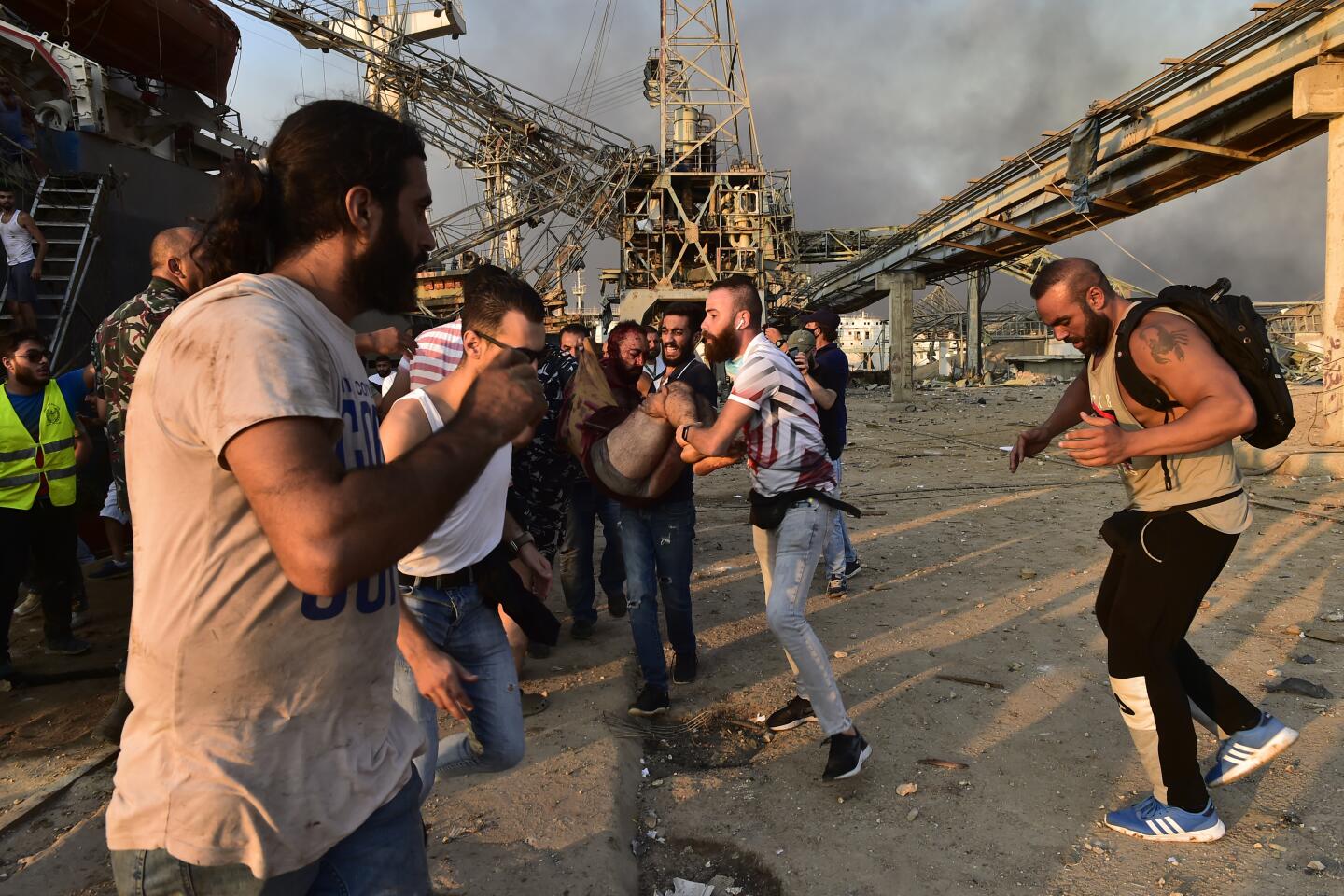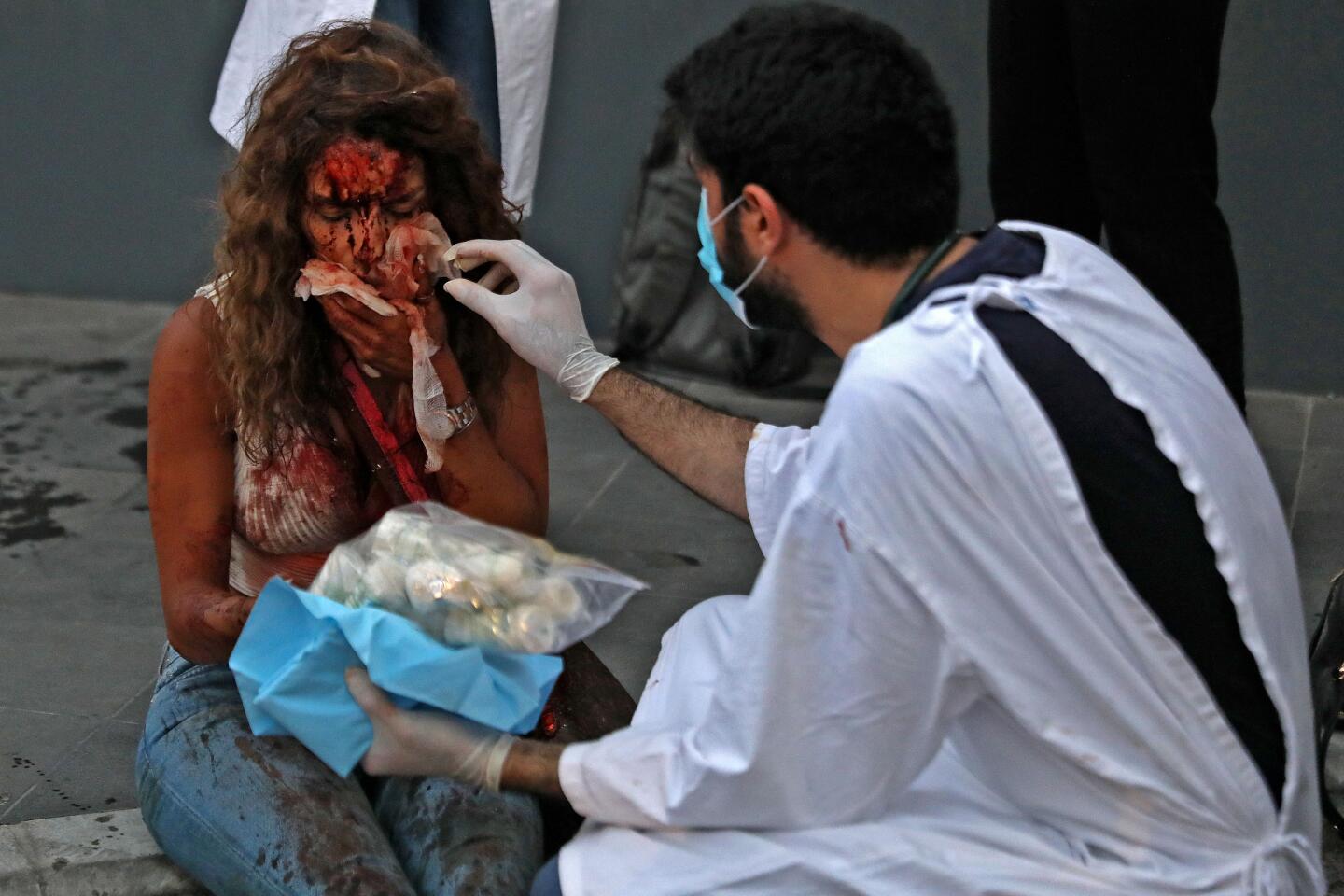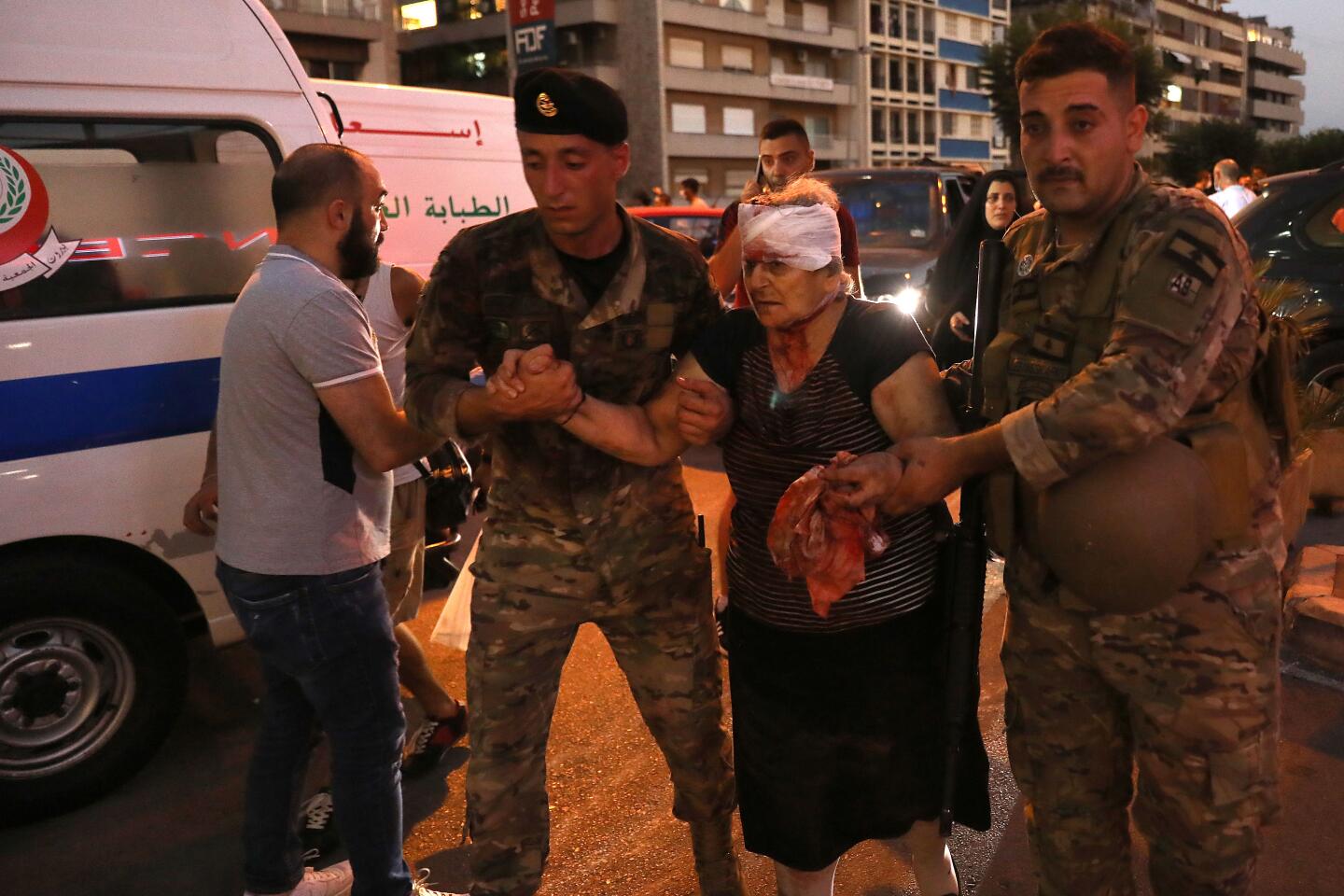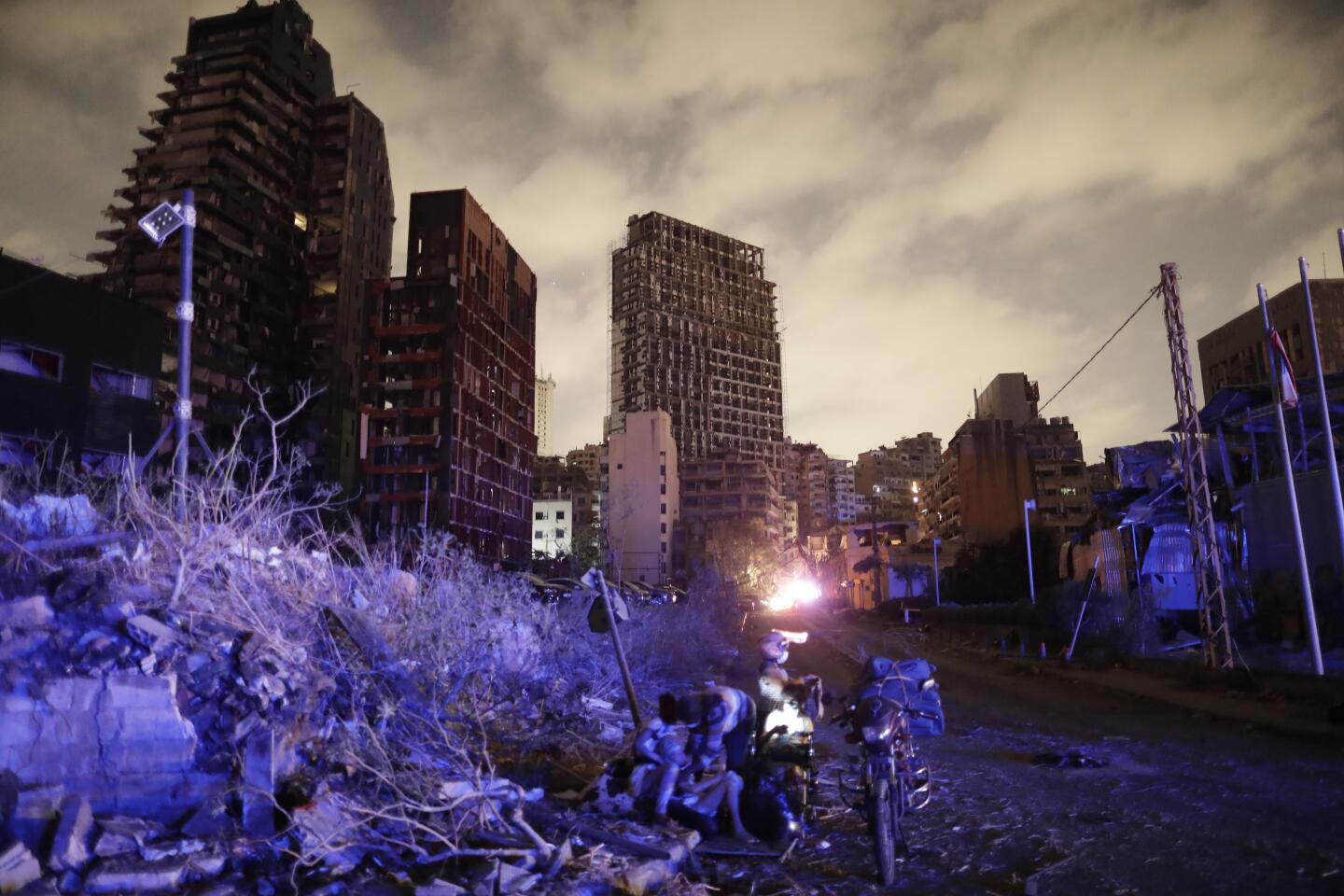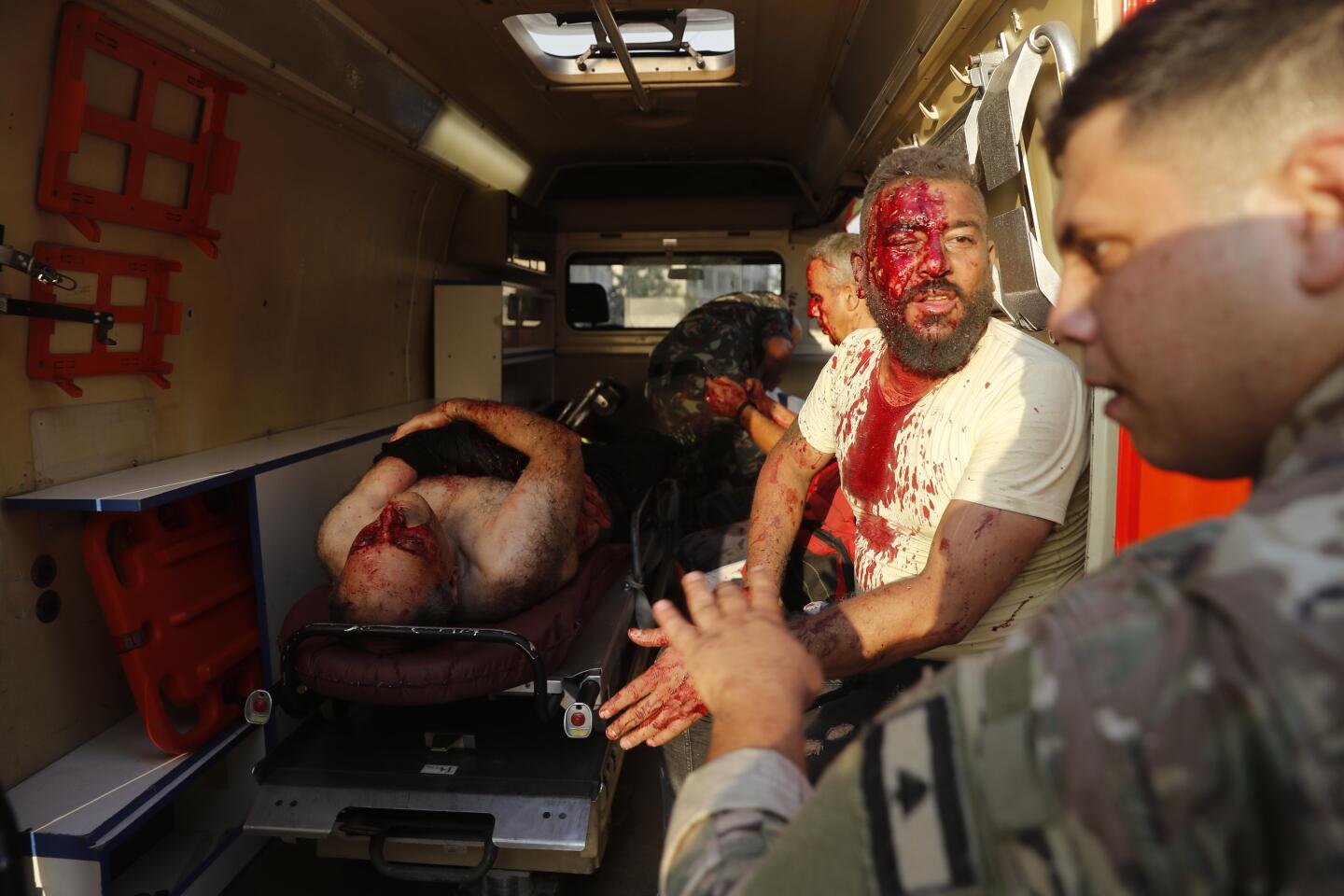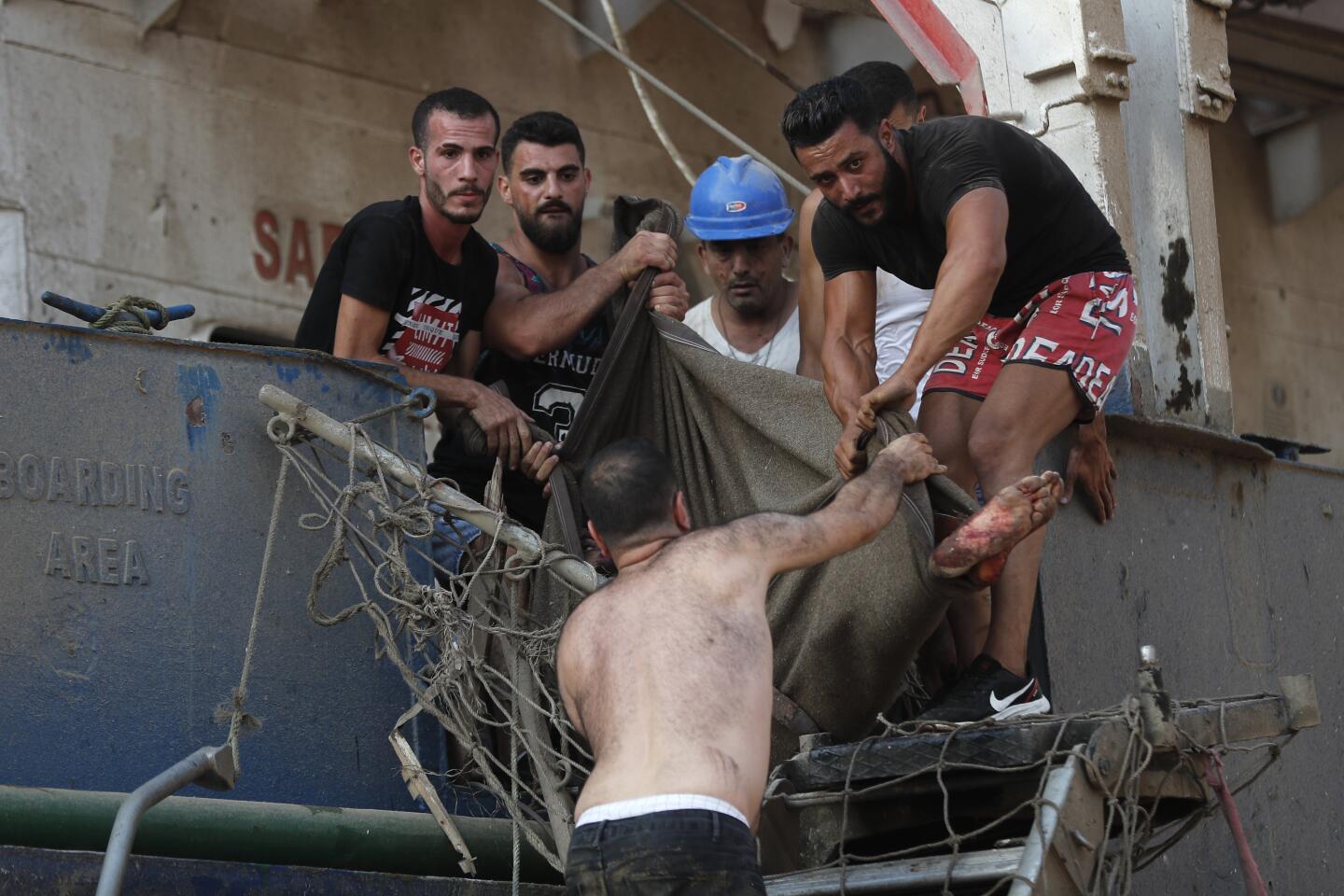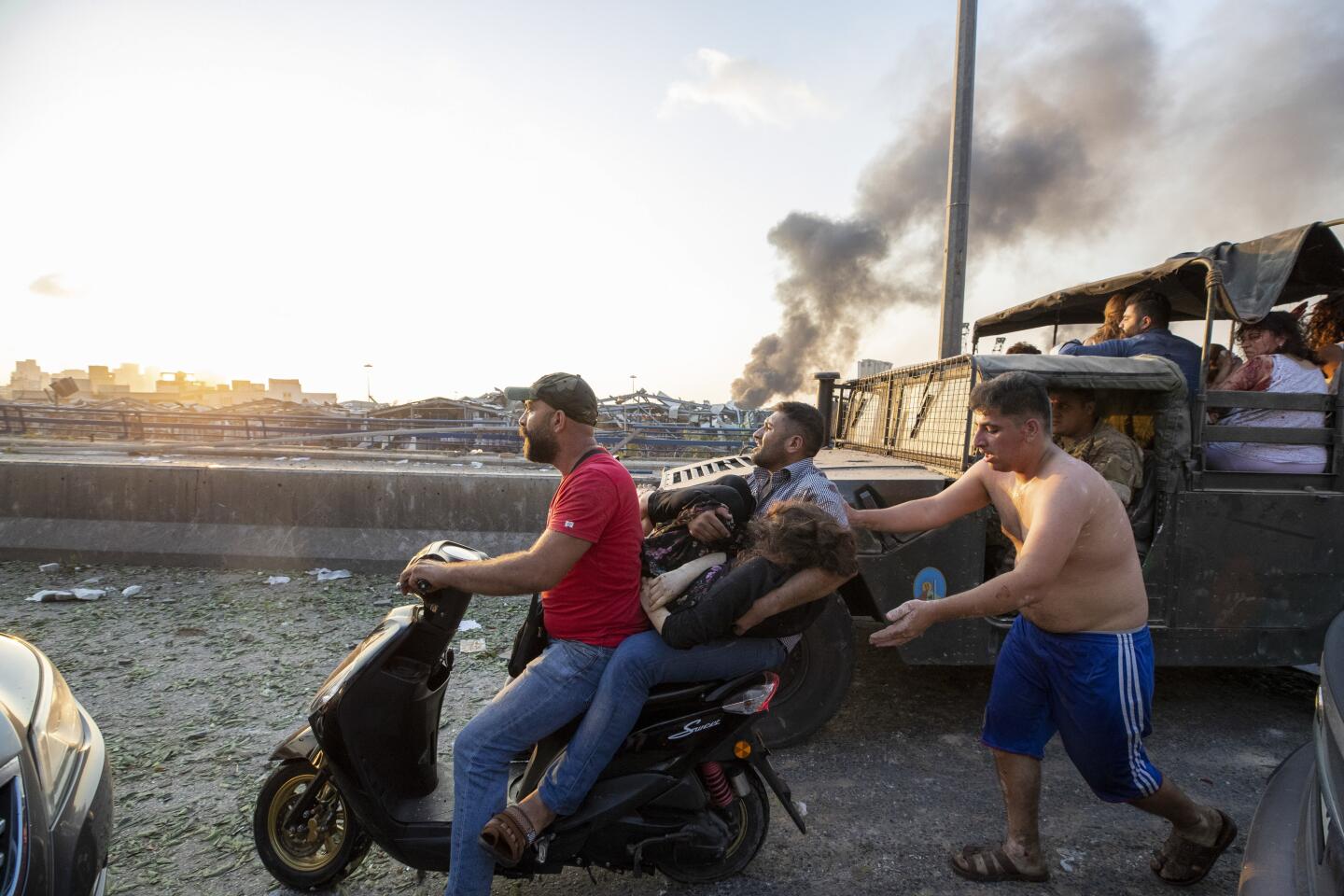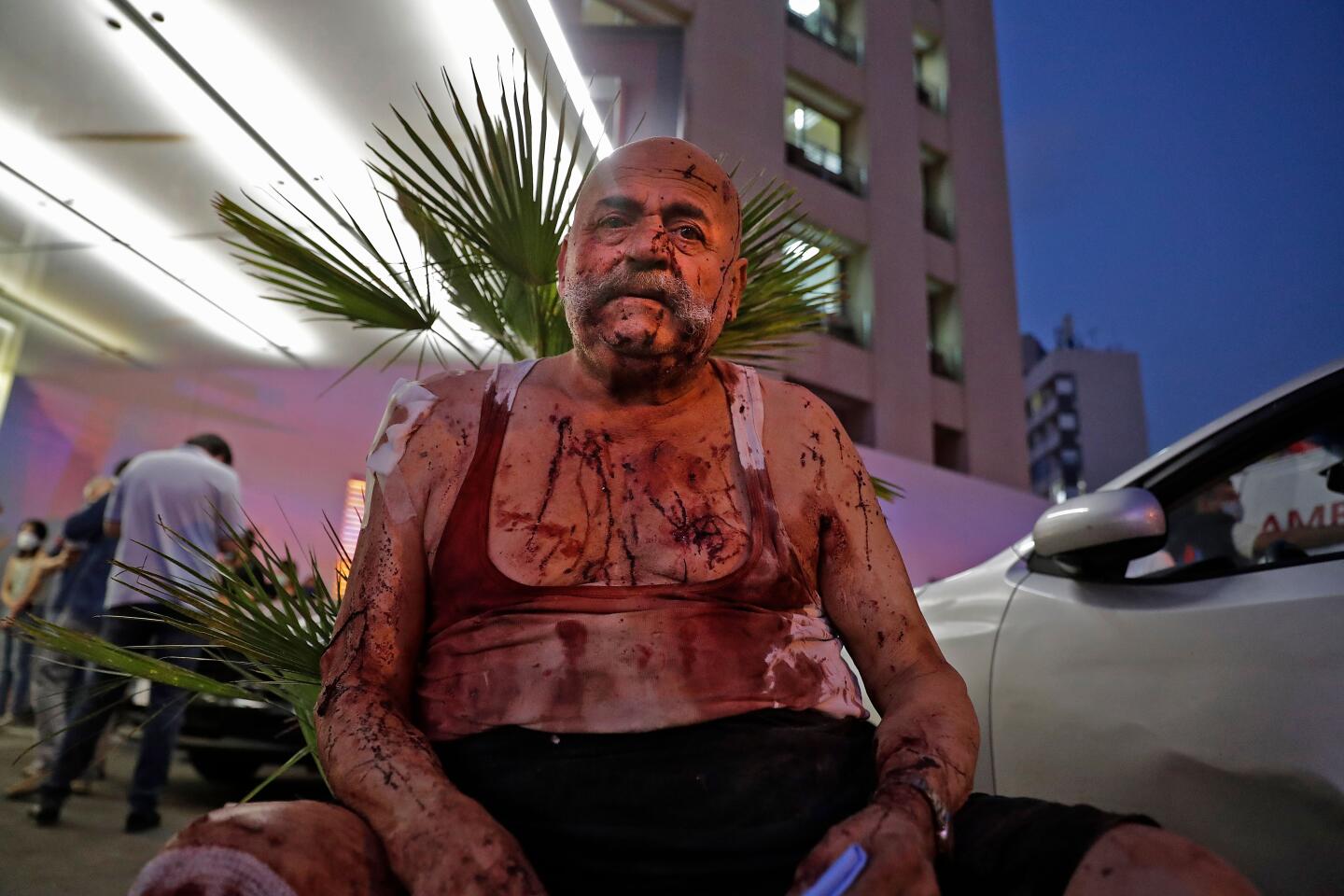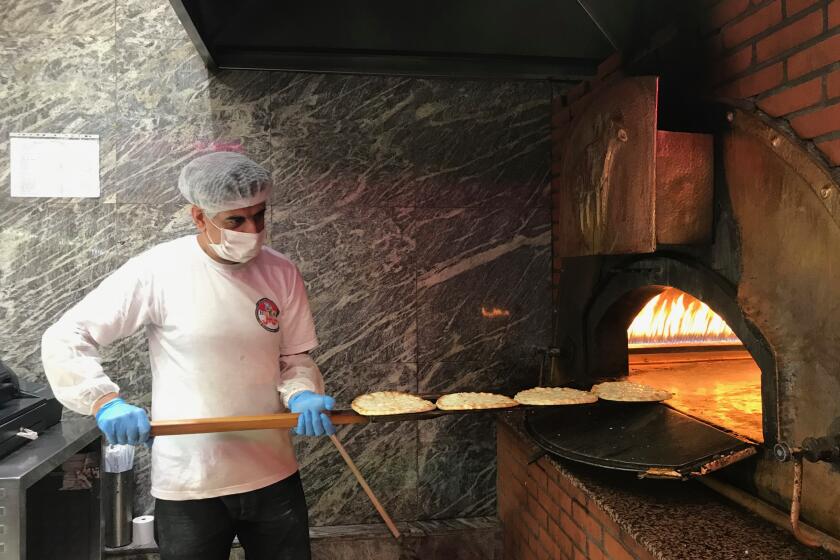‘Beirut is a devastated city’: Government orders investigation into massive blast that killed at least 100
- Share via
- Share via
BEIRUT — Residents of Beirut awoke to a scene of utter devastation Wednesday, a day after a massive explosion at the port sent shock waves across the Lebanese capital, killing at least 100 people and wounding thousands.
Smoke was still rising from the port, where huge mounds of grain gushed from hollowed-out silos. Major downtown streets were littered with debris and damaged vehicles, and building facades were blown out.
George Kettaneh, an official with the Lebanese Red Cross said at least 100 people had been killed and more than 4,000 wounded. Kettaneh said the toll could rise further.
Investigators began searching the wreckage for clues to the blast’s cause. The government ordered port officials put under house arrest as an official letter surfaced online showing that the head of the customs department had warned repeatedly over the years that a huge stockpile of ammonium nitrate stored in a hangar at the port was a danger and asked for a way to remove it.
Ammonium nitrate is a component of fertilizer that is potentially explosive. The 2,750-ton cargo had been stored at the port since it was confiscated from a ship in 2013. It is believed to have detonated Tuesday after a fire broke out nearby.
The 2017 letter from the customs chief to a judge could not be immediately confirmed. If authentic, it will likely deepen the belief already expressed by some Lebanese that widespread mismanagement, negligence and corruption among the country’s ruling class are to blame for the explosion.
Scores of people remained missing Wednesday, with relatives pleading on social media for help locating loved ones. An Instagram page called “Locating Victims Beirut” sprang up with photos of missing people, and radio presenters read the names of missing or wounded people throughout the night. Many residents moved in with friends or relatives after their apartments were damaged and treated their own injuries because hospitals were overwhelmed.
Saint George University Hospital, one of the major private hospitals in Beirut that had been receiving COVID-19 patients, was out of commission Wednesday after suffering major damage. A physician who identified himself as Dr. Emile said 16 staff members and patients, including four nurses, died in the blast. He declined to give his last name out of privacy concerns.
Tuesday’s blast shook buildings and shattered windows miles away. An orange-black plume of smoke towered over the city as ambulances wailed and the injured wandered dazed and bloodied among fallen bodies and battered cars in scenes reminiscent of Lebanon’s civil war during the 1970s and 1980s.
Shock waves overturned cars on highways. Ships were damaged on the waterfront. People were trapped amid toppled buildings and rubble. Doctors were overwhelmed; hospitals quickly filled up. Many wounded were turned away. Doors were knocked from their hinges across town, and Beirut’s mayor, Marwan Abboud, broke into tears as he toured the debris, saying, “Beirut is a devastated city.”
Embattled Prime Minister Hassan Diab said after the blast that the day’s events would not pass “without accountability,” adding that officials “will pay the price for this disaster.”
“That’s a promise to the martyrs and wounded.”
Beirut was declared a disaster area. The bedlam brought back shadows of Lebanon’s civil war, which had left Beirut neighborhoods in ruins. But this time, the chaos was compounded by an economy on the brink of collapse, as well as a spike in coronavirus cases that has left the country’s hospital system dangerously overstretched. For months, the city, which has watched the lira lose nearly 85% of its value against the dollar, seemed to be slowly imploding amid the weight of its burdens.
President Michael Aoun vowed before a Cabinet meeting on Wednesday that the official investigation into the explosion would be transparent and that those responsible would be punished. “There are no words to describe the catastrophe that hit Beirut last night,” he said.
The government declared a two-week state of emergency, effectively giving the military full powers during this time. The Cabinet also ordered that an unspecified number of Beirut port officials be put under house arrest pending the investigation into how the ammonium nitrate came to be stored at the port for years.
In the letter that surfaced online, the customs chief warned of the “dangers if the materials remain where they are” and asked the judge for guidance on what to do with them. He said five similar letters were sent in 2014, 2015 and 2016. The letter proposes that the materials be exported or sold to a Lebanese explosives company. It is not known if there was ever a response.
The explosion was not far from the site where in 2005 former Prime Minister Rafik Hariri was assassinated in a bomb attack that exposed sectarian fissures and the pervasive meddling in Lebanon’s affairs by Iran and Syria. A special international tribunal is expected this week to hand down verdicts in the cases of four members of militant group Hezbollah, which is backed by Iran and is one of the main parties in the Lebanon’s power-sharing government.
The blast also came amid deepening tensions between Israel and Hezbollah on Lebanon’s southern border. Residents reported hearing planes overhead just before the explosion, fueling rumors of an attack, though Israeli military overflights are common. An Israeli government official said Israel “had nothing to do” with the blast. He spoke on condition of anonymity because he was not authorized to discuss the matter with the news media.
U.S. Secretary of State Michael R. Pompeo sent his “deepest condolences” to the people of Beirut and said the United States was closely monitoring the situation. “Our team in Beirut has reported to me the extensive damage to a city and a people that I hold dear, an additional challenge in a time of already deep crisis,” Pompeo said in a written statement.
President Trump, who offered no specifics, told reporters in Washington that it “looks like a terrible attack,” saying, “I met with some of our great generals, and they just seem to feel that it was.”
Video taken by residents showed a fire raging at the port, sending up a giant column of smoke, illuminated by flashes of what appeared to be fireworks. Local TV stations reported that a fireworks warehouse was involved. The fire then appeared to spread to a nearby building, triggering a more massive explosion, sending up a mushroom cloud and generating a shock wave and a noxious cloud.
Charbel Haj, who works at the port, said it started as small explosions like firecrackers. Then, he said, he was thrown off his feet by the huge blast. His clothes were torn.
The Lebanese are used to eating plenty of meat, but the country’s economic woes have made it a luxury as rampant inflation takes its toll.
Outside one hospital, Omar Kinno sat on the pavement, holding back tears. Kinno, a Syrian, said one of his sisters was killed when the blast rocked their apartment near the port and another sister’s neck was broken. His injured mother and father were taken to a hospital, but he didn’t know which, and he was making calls trying to track them down.
“I have no idea what happened to my parents. I am totally lost,” he said.
Another man said the carnage reminded him of decades ago.
“It was a real horror show. I haven’t seen anything like that since the days of the [civil] war,” said Marwan Ramadan, who was about 500 yards from the port and was knocked off his feet by the force of the explosion.
The Associated Press contributed to this report.
More to Read
Sign up for Essential California
The most important California stories and recommendations in your inbox every morning.
You may occasionally receive promotional content from the Los Angeles Times.
